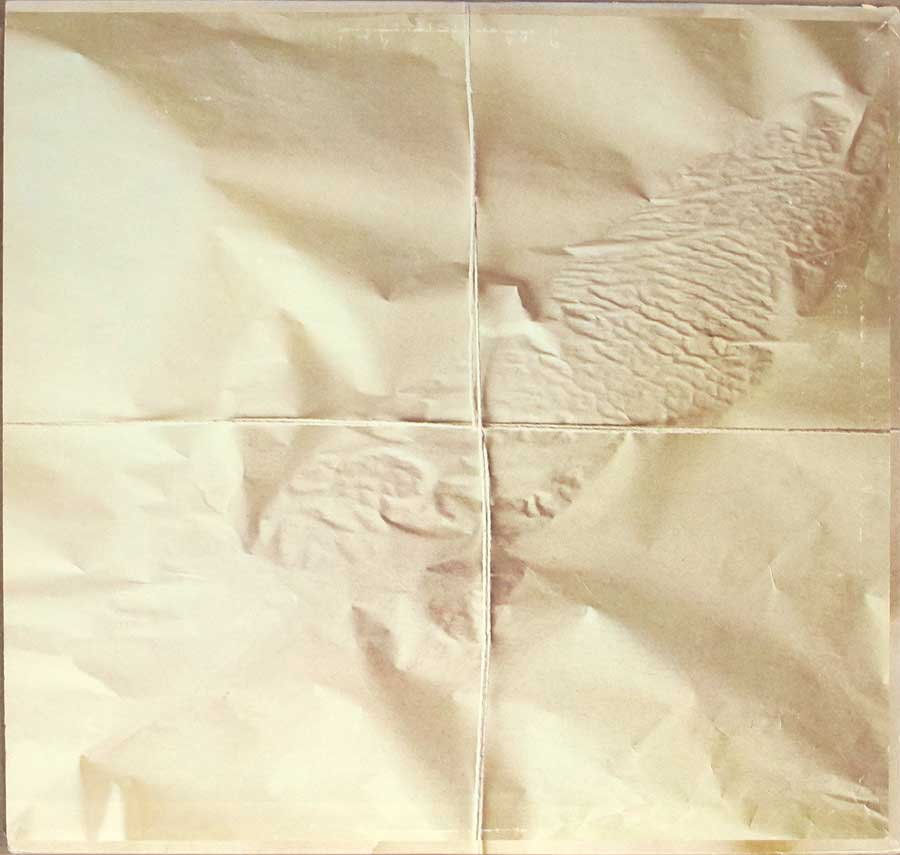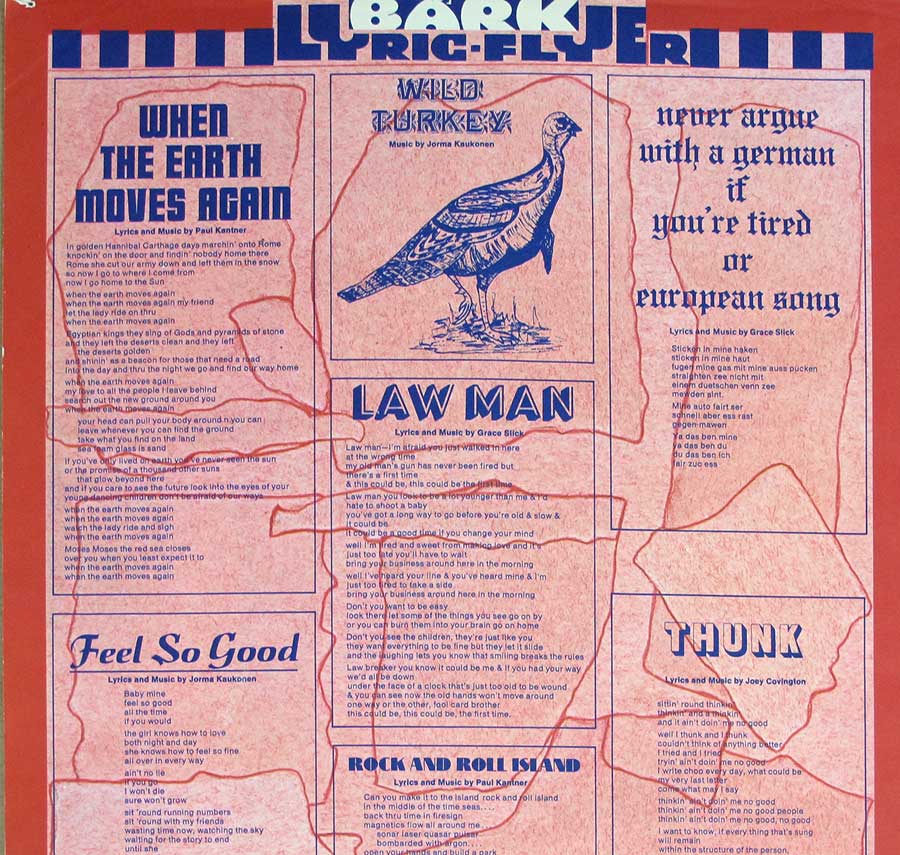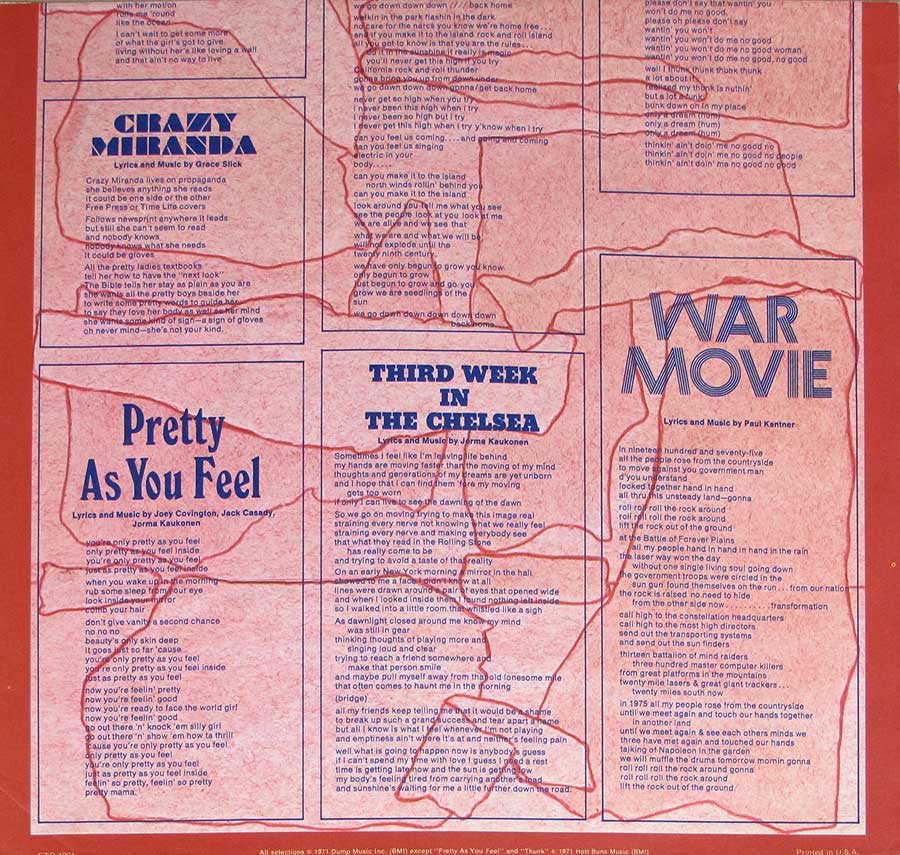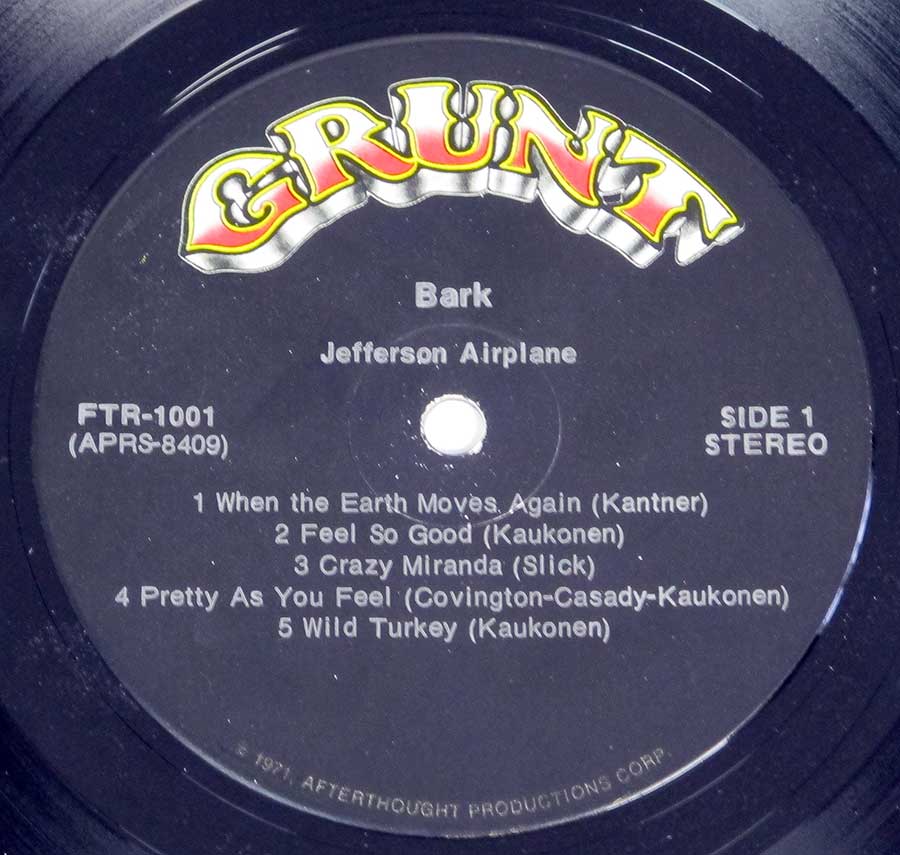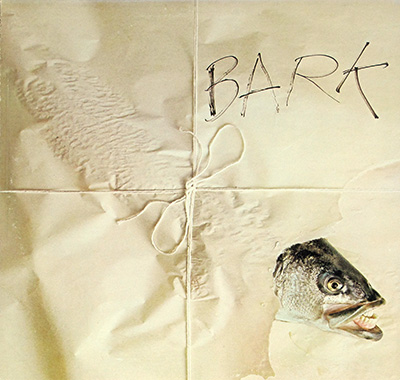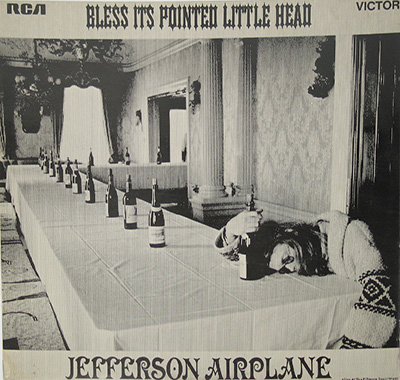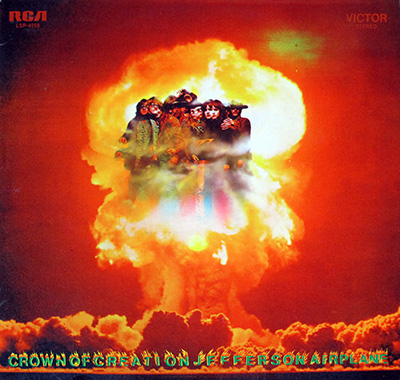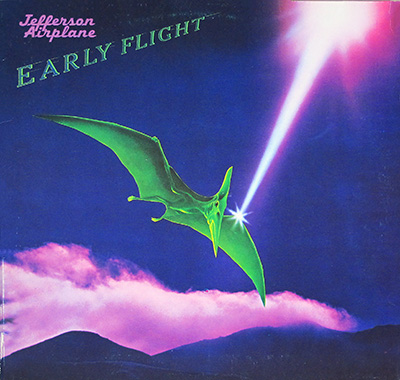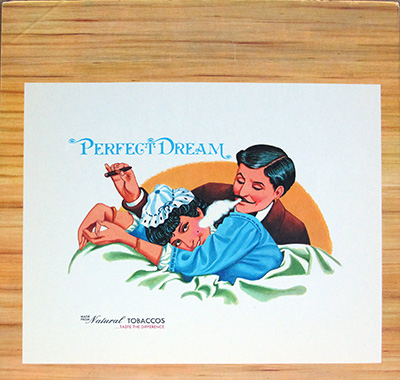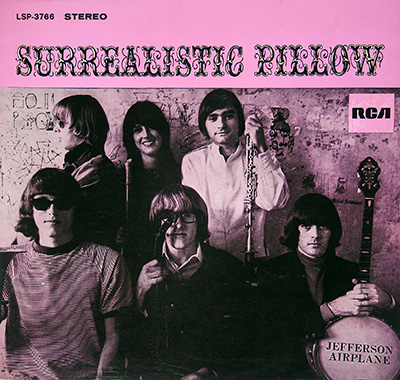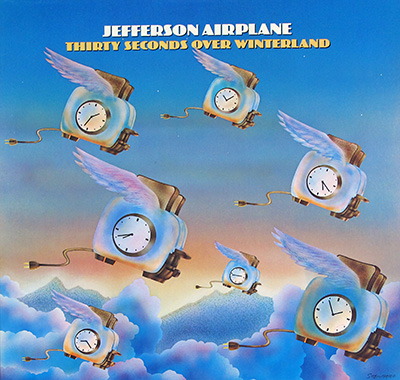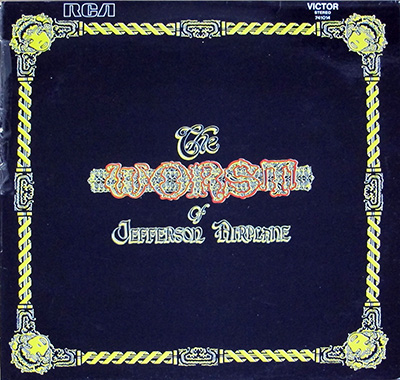"Bark" (1971) Album Description:
"Bark" is Jefferson Airplane in 1971, landing hard after the peak-psychedelic years and trying to stay airborne with a new lineup, a new label, and a very different kind of chemistry. It is less “communal acid sermon” and more “five strong writers pulling in different directions,” which makes it uneven, but rarely boring. The surprise is that it still sounds like a major band, even while it’s quietly turning into several bands sharing the same studio time.
Where the band was at
Jefferson Airplane formed in San Francisco in 1965, hit escape velocity in 1967, and then spent the next few years testing how far a rock band could push politics, volume, and weirdness before the machine pushed back. By 1970, the classic lineup was cracking: drummer Spencer Dryden was out, Joey Covington stepped in, and the band’s center of gravity shifted toward the Kantner/Slick and Kaukonen/Casady camps. Marty Balin, the early co-founder voice, was no longer part of the working picture by the time "Bark" arrived.
America and the genre in 1971
The United States in 1971 is not the Summer of Love; it’s the hangover with a stack of unpaid bills. Vietnam drags on, the draft still hangs over young men, distrust of government is no longer a subculture hobby, and the music that once promised utopia now has to survive the morning after. Psychedelic rock is mutating fast: some bands go rootsy and domestic, others go heavier and meaner, and plenty of the old scene starts feeling like yesterday’s poster on today’s wall.
In that climate, "Bark" sits in a lane between acid rock and a more grounded early-’70s rock sound. Around the same time, the Bay Area orbit includes acts like the Grateful Dead and Santana, while the larger rock world is being re-shaped by hard rock and album-oriented radio. The point is not that Jefferson Airplane is chasing trends; it’s that the whole ecosystem is changing, and "Bark" documents that shift in real time.
The recording: craft, drift, and a lot of personality
Recorded from late 1970 into mid-1971 at Wally Heider Studios in San Francisco, "Bark" is credited as produced by Jefferson Airplane, and you can hear what that means: a band-run session where individual voices get room to stretch. That freedom gives you sharp moments, strange left turns, and a tracklist that sometimes feels like a set of solo statements stitched into an album shape. The sound is cleaner and more “studio-built” than the chaotic glow of the late ’60s records, but it keeps the edge.
A band can still chart like a powerhouse while splitting into factions. "Bark" is what that sounds like.
What you’re hearing: the musical exploration
The album swings between Kantner’s heavier, declarative rock instincts, Slick’s theatrical bite, and Kaukonen’s increasingly blues-rooted guitar personality. Instead of one unified psychedelic “trip,” the record plays like a tour through the members’ separate interests: hard-edged rock, off-kilter balladry, blues phrasing, and jam logic. When it locks in, it feels like a late-era pro band deciding to stop floating and start walking.
"Pretty as You Feel" is the clearest example of the new Airplane dynamic: a jam-based track built around groove, guest firepower, and Covington taking the vocal lead. Elsewhere, the album’s mood is more earthbound than cosmic, with songs that feel written for a world that’s gotten louder, angrier, and less patient with utopian slogans. If you came for kaleidoscopes, "Bark" hands you streetlights and asks you to deal with it.
Key people and the power shift
If there’s a headline inside the credits, it’s the continued rise of Jorma Kaukonen as a writer and front-line personality, not just the “lead guitarist in the corner.” Jack Casady remains the anchor, playing like he’s holding the whole thing together with wire and willpower. Grace Slick brings the sharp angles and the performance instinct that keeps even the oddest moments from collapsing.
- Core lineup on "Bark": Jack Casady, Joey Covington, Paul Kantner, Jorma Kaukonen, Grace Slick
- New texture: Papa John Creach appears on violin on select tracks, adding a gritty, human line through the electric sound
- Notable guests on “Pretty as You Feel”: Carlos Santana (guitar) and Michael Shrieve (drums)
Packaging and the little weird controversies
"Bark" did not arrive quietly. The original packaging came in an outer brown bag-style sleeve with a die-cut hole and a fish image peeking through, topped off with lyric-sheet presentation that leaned into the “product” joke. Some people loved the audacity; others saw it as a gimmick that shouted louder than the music.
The other controversy was subtler and more personal: the album’s timing made the absence of Marty Balin feel like a public break-up, not a private personnel change. Fans who wanted the classic Airplane blend heard a band re-balancing power, and not everyone enjoyed the new math. Even the label move had an edge: the band’s Grunt imprint sat inside a major-label world, which raised the old counterculture question in a new form—how “outside” can you be while still shipping records at scale?
Release, reception, and the numbers
Released in September 1971 on Grunt/RCA, "Bark" performed like a band that still mattered, climbing to a high peak on the U.S. album chart and moving enough units to earn a major certification. The single “Pretty as You Feel” became the band’s last U.S. Top 100 hit, which is the kind of detail that reads like trivia until you hear the record and realize it’s a turning-point document. This is not the sound of a beginning; it’s the sound of a famous machine still running while the parts are being swapped out.
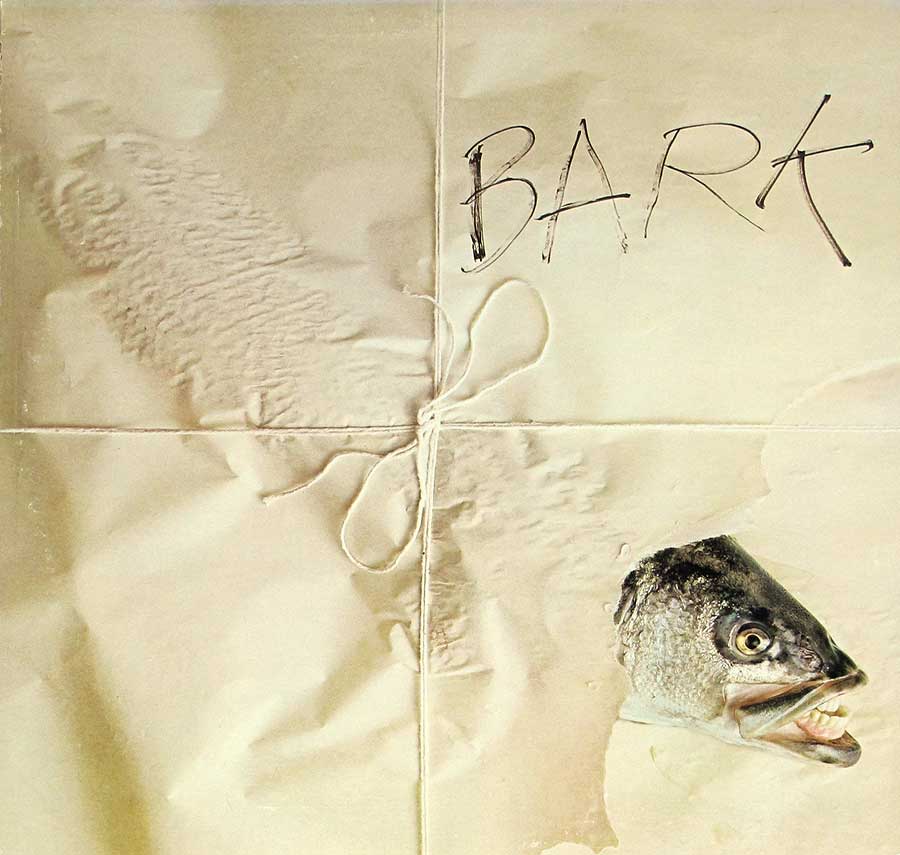
References
- Wikipedia: "Bark" (Jefferson Airplane album)
- AllMusic: Bark (album entry)
- Billboard 200 chart page (Oct 2, 1971)
- uDiscoverMusic: album packaging story (mentions "Bark" bag sleeve)
- Rolling Stone (1971): “Jefferson Airplane Grunts: ‘Gotta Evolution’”
- Discogs: Jefferson Airplane – Bark (master release)

